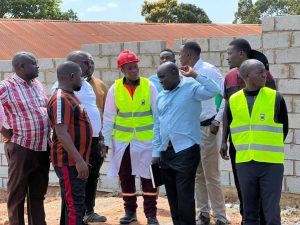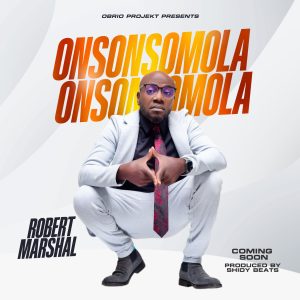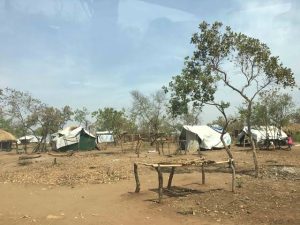How to start & operate a savings credit co-operative society in Uganda
10 min read
By Natumanya Bright
The UPDF SACCO WAZALENDO has assets of over UGX270 Billion. On their own, the Soldiers may never have been able to amass such wealth. Centenary Bank as we know it today is a creature of a few likeminded individuals who brought their resources together and built the institution to what it is now. It is clear from these examples that joining and starting a SACCO is a wise thing to do. In this Article, I explain what a SACCO is, its benefits, the legal process of registering and operating one.
Introduction
‘‘If you want to go fast, go alone. If you want to go far go together’’-African Proverb.
In 1993, Centenary bank started as an initiative of the Uganda National Lay Apostolate as a Credit Trust operating using the model of a SACCO. It began its operations in 1985 and was mainly serving economically disadvantaged people especially in rural areas. Ten years later, that is, in 1993 it was registered as a fully-fledged commercial bank. Today Centenary Bank is one of the leading commercial banks in Uganda with over One Million deposit clients and operates in over 57 areas countrywide.
This is the story of centenary bank today, but it can also be your story years from now or even much bigger and better. The idea of doing work together breeds much more success than personal economic or social journeys.
The idea of forming Savings and Credit Cooperative Societies is synonymous with these principles because in one way or the other there is community involvement and engagement. For instance take a look at the success story of Centenary Bank, it is because it was first of all an initiative of a certain group or community of people and secondary it was serving communities specifically rural communities where it started from and it still holds the same vision of economically empowering rural populace.
All this indicates that there is power in togetherness and there is even much more power in helping others achieve their dreams and maximally utilize their potential to become what they desire to be; be it educating their children; eradicating poverty from their families; or even undertaking rather sophisticated discoveries and risks to make the society and the world a much better place than they found it.
This has been true for a 13-year-old William Kamkwamba who built a wind turbine to save his Malawian village from famine and today he is known as the “The Boy Who Harnessed the Wind” for the inventions he undertook and connected communities with electricity from windmill.
Therefore by forming these cooperative societies you can make all this possible for yourselves, your children and help millions upon millions who have unimaginable dreams but cannot move forward because of financial constraints and social support.
Savings and Credit Cooperative Society.
A Savings and Credit Cooperative Society (Sacco) simply means the coming together of members for the object of promoting their economic and social interests in accordance with cooperative principles. (Section 3 of the Cooperative Societies Act Cap.112).
Hence any community or group of members desirous of forming a union for their economic or social interest must satisfy the conditions set out in Section 4(1) of the Cooperative Societies Act, to wit; the number of members must at least be thirty all whom are qualified for membership of the society under Section 13 of the Act, in order to form a cooperative society.
Section 13(1) of the Act requires that for a person to become a member of a Sacco, he or she should have attained the age of eighteen years as well as being a resident within or in occupation of land within the society’s area of operation.
Contrary to the requirement of attaining eighteen years, section 13(2) permits a person of twelve years and above to become a member of a society, but such a person shall not be eligible to act as a committee member of the society until he or she has reached the age of eighteen.
Types of societies
There are generally four types of societies which can be formed for the purpose of advancing economic and/or social interests of a certain group or community of people, to wit;
The Primary Society that consists of at least thirty members and this is the most common type of society that is formed by individual groups and communities.
Then there is Secondary society that consists of at least two registered primary societies among its registered members.
Tertiary Society should consist of at least two registered secondary societies among its registered members.
Finally an Apex Society consists of two or more secondary societies. The Uganda Cooperative Alliance Limited is the apex body for all registered cooperative societies.
Take note that most of the societies that people form are primary societies that mainly aim at advancing their economic and social interests at the grass root level.
Advantages of forming a Cooperative Society.
The main advantage of forming a Savings and Credit Cooperative Society as against other legal entities is that it is easy to form and operate. The official costs involved in registering a Savings and Credit Cooperative Society are also very low compared to other entities in order to suit the objects of the entity.
By its nature, it is a voluntary organization whose membership is open to all. Any person with common interest can apply and become a member of the organization. The membership fees is also kept low so as to enable as many people as possible to join the organization. At the same time, there are no rigorous processes for any member that wants to leave the society, there are no stringent entry or exit barriers.
The dividends or surplus generated by the society are distributed equally among the members which benefits them all. A certain percentage is also reserved for promoting the welfare of education in Uganda. Section 49(1) of the Cooperative Societies Act requires that 1% of the cooperative turnover per year shall be made to the National Cooperative Education Fund.
Further, the liability of members in cooperative society is limited only to the extent of their capital contribution. This means that they cannot personally be liable for any debts of the cooperative society.
Finally, cooperative societies have played a very important role in changing social customs and lifting the lives of women and persons with disabilities.
Requirements
A cooperative society being a legal entity must satisfy all the legal requirements in order to be registered. This is in line with the law and the need to prevent unscrupulous persons that form such entities as a conduit of theft and unjust enrichment. Since the entity deals with people’s savings then precautions must be taken that even after registration there is continuous monitoring to ensure that members are not gamboled of their hard earned savings.
Forming this kind of entity doesn’t require much complicated requirements unlike other entities as discussed hereunder;
Name of the society.
While choosing the name of the society, the law requires that it must reflect the elements of domicile, economic activity of common bond of members and of course bearing the words Savings and Credit Cooperative Society at the end whether limited or unlimited.
For instance, consider that the intended cooperative society is to advance economic and social interests of young men and women dealing in metal works in Wandegeya-Kampala. They can have the name as ‘Wandegeya Metal Works Savings and Credit Cooperative Society Limited.’ In this example Wandegeya is the locus or domicile of the society and anyone that intends to find the society can easily locate it in Wandegeya. Metal Works is the economic activity that binds the members which as well advances their social interests, and being a Savings and Credit Cooperative Society.
In case it was a company or association prior to the registration, it must be deregistered and proof of deregistration letter(s) should be attached as well as the letter acknowledging the process from the respective authorities.
One of the biggest Cooperative Societies in Uganda is Wazalendo Sacco which is an institutional Sacco composed of Uganda People’s Defence Forces personnel and their families, UPDF Reserve Forces and Staff of Ministry of Defence.
The above name and membership can give you a hit of how to come up with the name of your Sacco and the scope of membership. Wazalendo is a Swahili word which means ‘Patriot’ hence synonymous with the military.
Members.
The law requires that the minimum number of members to start and operate a cooperative society must be at least thirty persons. This means that as long as any group has thirty or more individuals then they can proceed to apply for registration of their society as a primary society since the law does not provide for upper cap then they can be as many as they can organize themselves.
Take note that considering human rights advancements and gender equality laws and reforms, the members must include both genders as well as different age brackets and persons with disabilities. In fact the registrar requires a 40% to 60% ratio of both genders. That is to say that if one gender is 40% then the other gender must be 60% of the membership.
Similarly, members must include both the youths and the elderly whereby the membership cannot only contain one group. This is intended to clear the imbalances in human development, provide employment and income sources for all age groups as well as guarantee continuity of the society through the young men and women that work along the old persons.
As much as the law prohibits persons below the age of eighteen to become members of cooperative societies, it permits a person of twelve years and above to become a member but such a person cannot be elected to act in any capacity as a committee member until they have turned 18 years.
The only practical challenge with this provision is that persons below the age of eighteen years do not have National Identity Cards and yet it is a compulsory requirement that in order to be registered, all members must submit a copy of their National Identity cards. This is a hindrance not only to the persons below eighteen years but also to any other person without the card. Liberalization would therefore require that the authorities should relax the requirement by allowing any other legally accepted form of identification like passports, schools and university identity cards for students among others to be used during the registration process.
Finally in order to be accepted as a member, there must be a common bond with other members. The law requires that a person should either be a resident or owning land in the area where they are registering the cooperative society. The intention of this rather limitation is to weed out the riff ruff societies that make it hard to trace members in case they take loans and disappear without known identity or the persons that form such entities just as a conduit to high handed theft and corruption. This has happened before in western parts of Uganda where a self-styled entity called COWE took peoples savings and only after a few months just closed its doors and left with hefty amounts of money.
Application to be registered as a cooperative society.
Any thirty or more persons that are desirous of forming themselves into a Saving and Credit Cooperative Society can follow the following procedure to be registered as a society:
- They have to first purchase four copies of Savings Credit and Cooperative Model Bye Laws and a set of Cooperative Societies Act and Cooperative Societies Regulations from Ministry of Trade Industry and Cooperatives located at Parliamentary Avenue in Kampala by paying in the bank the necessary fees.
- The society should then elect an interim committee from its members which should preferably be an odd number of persons between five (5) and nine (9).
3.Members will then fill in the Model Bye Laws stating their full names, gender, age, place of residence and signature. Members will then be required to make financial statements (income statement and balance sheet) showing a comprehensive schedule of all shareholders showing shares held by each member, entrance fee, shares, savings of members and loans if any.
4.The Model Bye Laws will then be submitted to the Department through the respective District Commercial Officers. In Kampala, the commercial officer seats at Kampala Capital City Authority (KCCA) offices behind Equatorial mall (just off Bombo Road).
5.Each founder member must submit a photocopy of their National Identity Card and their respective telephone contacts which names must correspond with those on the national identity card. The copies of the National Identity Card are as well signed.
6.People that handle the society’s bank accounts must enclose passport size photographs, that it, the Chairman, Vice Chairman, Secretary and treasurer.
- The founder members (founder members are the thirty persons or more that start a savings and credit cooperative society), should undergo training in cooperatives prior to submission of the application documents. A training report must also be attached, signed by the founder leaders and the District Commercial Officer.
- Once all these steps have been complied with, then the members can submit the byelaws to the district commercial officer who forwards them to the Department and have their Sacco registered and issued with a certificate of Registration.
Conclusion.
In conclusion, cooperative societies have significantly helped and continue to help persons living in rural and slam urban areas (not only limited to these people) with stable incomes as financial assistance. The interest rates are always low considering the standard and nature of the area the society operates; it has also tremendously limited the operation of money lenders that have for long been seen as unscrupulous as a result of hiking interest rates and their rather forceful modes of getting back their money.
Cooperative societies have also aided government efforts in increasing agricultural production and alleviating poverty hence improving the lives of people.
Disclaimer
This article provides general information only. It is not intended to provide advice with respect to any specific set of facts, nor is it intended to be relied on as legal advice.
About the Author;
The author is a commercial law practitioner with M/s Tibugwisa and Co. Advocates. (https://www.tadvocates.com/blog-single.php?id=13)
For comments and inquiries contact him at bright@tadvocates.com or +256775788115.
Source: The Money Engineer





